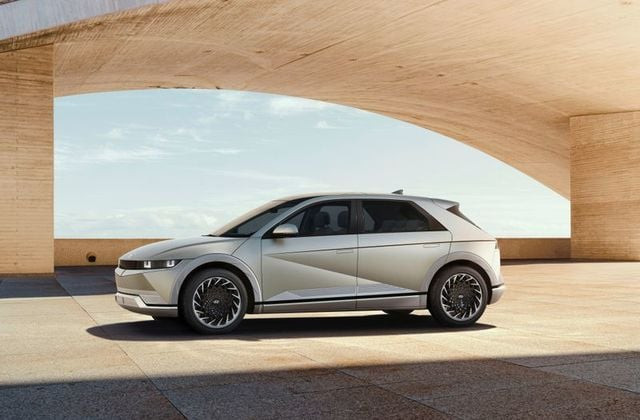Hyundai Motor launches Ioniq 5 electric crossover
The launch of Ioniq 5 is the linchpin of Hyundai’s long-term goal to capture 10% of global EV sales by 2025

South Korean automaker Hyundai Motor Co launched its Ioniq 5 midsize crossover on Tuesday, the first in a planned family of electric vehicles (EV) that it hopes will propel it into the third rank of global EV makers by 2025.
The company says the model is based on a new electric vehicle-only platform that uses its own battery module technology and requires fewer components than Hyundai’s existing electric cars, enabling faster production at a lower cost.
The launch of Ioniq 5 is the linchpin of Hyundai’s long-term goal to capture 10% of global EV sales by 2025, up from a combined market share of 7.2% for Hyundai and Kia together during the January-September period in 2020, according to industry tracker SNE Research. Hyundai Motor and its sister company Kia Corp together aim to sell 1 million EVs in 2025.
General Motors sets 2035 goal for eliminating emissions from most cars
“We expect this year’s (global) EV demand will increase more than 30% versus last year,” Hyundai Motor President Chang Jae-hoon told a news conference.
The Ioniq 5 will have a maximum driving range of about 480 km (298 miles), up nearly 20% from the Kona EV, which previously had the longest range among Hyundai’s EV lineup.
It will offer two battery pack options - 58-kilowatt-hour (kWh) or 72.6 kWh - and will be available in selected regions starting in the first half of 2021, Hyundai said in a statement.
Apple targets car production by 2024 and eyes 'next level' battery technology
The South Korean automaker did not disclose the price of the Ioniq 5, but Hyundai Motor Europe President Michael Cole said in Europe it would start at about 42,000 euros ($51,100) before government incentives.
Hyundai is targeting sales of 100,000 units globally next year, with about 30%-40% in Europe, 30% in North America, and 20% in South Korea.
“Hyundai will be able to increase its presence in the global EV market as it adds a new EV, considering that the company showed solid performance with its major EV Kona Electric,” said Kevin Yoo, an analyst at eBEST Investment & Securities.



















COMMENTS
Comments are moderated and generally will be posted if they are on-topic and not abusive.
For more information, please see our Comments FAQ